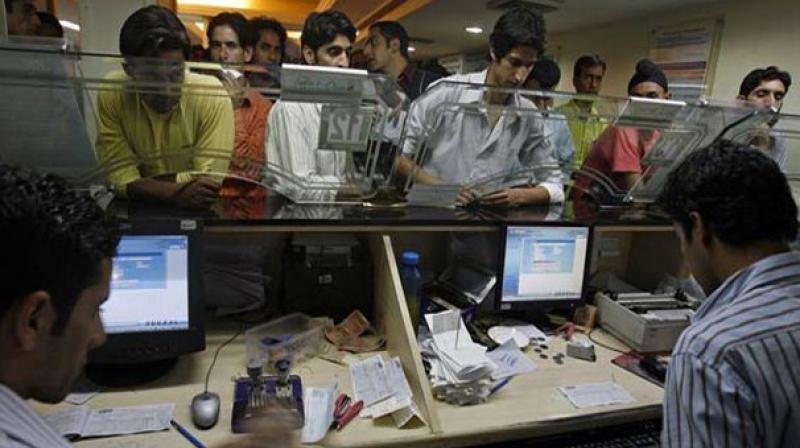Hyderabad: Note cheats use Aadhaar card copies

Hyderabad: Aadhaar cards, extremely crucial as one of the proofs of identity for bank transactions in the wake of the demonetisation, are being grossly misused by brokers to convert their clients’ black money into white.The trick is simple.
The brokers manage to get large numbers of Aadhaar card photocopies from shops selling SIM cards or phone deals, education institutions and similar places where photocopies of the card have to be presented in order to receive services. These photocopies are then submitted to banks as proof of identity which is required when one exchanges old currency notes for new.
Brokers are even offering Rs 5 for each Aadhaar copy and the targeted staff at mobile shops and educational institutions — which have the largest database of the ID cards — is doing brisk business.
The brokers furnish the ID card to people who they pay to stand in queues at banks to exchange the currency. With the huge rush for cash witnessed every day for the past week, banks are unable to check or verify whether the Aadhaar photocopy submitted is genuine or fake.
The brokers strike a deal with black money holders to turn black money into white in this manner and take a commission of 30 per cent.
The practice has become so widespread that the UIDAI (Unique Identification Authority of India), which issues the Aadhaar card, sent out a circular warning people to be careful with their Aadhaar cards.
“We urge you to be discreet about your Aadhaar and other documents. Do not share the document number or a printed copy with anyone. Wherever you are submitting a copy of your Aadhaar self-attest it and state the purpose clearly to avoid misuse. If there has been a misuse, you can take legal action,” the circular said.
Ignored co-op banks warn of stir
Opposing the Centre’s decision to exclude co-operative banks from the process of note exchanges following the demonetisation scheme, the Co-operative Bank Employees association has decided to launch a protest from November 18.
The banks were set aside from the massive demonetisation process due to their proximity with the politicians. Most of the co-operative banks, including DCCBs, are run by elected members with political backgrounds.
Both the Telugu states have about 600 co-operative banks with an average of 40 banks for each district. These banks employ over 6,000 people. On Tuesday at Vijayawada, a meeting of employees from banks in 14 states, passed a resolution declaring a nationwide strike.

